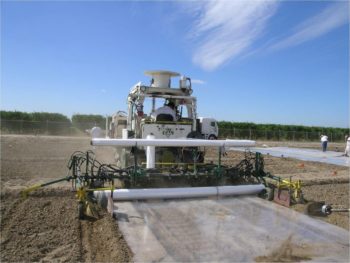
The Maritime Union of New Zealand has welcomed the Ports of Auckland’s decision to stop releasing methyl bromide emissions into the air, and called for other ports to follow their example.
The move to fully recapture the toxic gas after fumigation, used to kill insects in logs before export, sets a new benchmark for industry best practice, according to the Union.
“We will continue the campaign to stop rogue employers exposing people to methyl bromide for another decade if need be,” Joe Fleetwood, MUNZ National Secretary, said.
After fumigation is complete the gas can be recaptured and turned into a disposable salt. However, some ports instead release the toxic fumes into the air, endangering workers and nearby communities.
“The Government must not allow best practice in some ports to be undermined elsewhere,” Fleetwood said, adding that “if Wellington and Auckland can do the right thing, all ports must.”
The Maritime Union continues to call for a total ban on the use of methyl bromide.
As part of Ports of Auckland’s ambition to be the most sustainable port in New Zealand, the company earlier said that it will require the total recapture of methyl bromide gas used for container fumigation by September 1, 2017, and for all cargoes by the end of the year.
“The intention to move to a full ‘recapture’ system by the end of the year, instead of the current practice of simply venting the gas into the atmosphere, shows leadership and responsibility by Ports management,” Damien O’Connor, Labour’s Spokesperson for Biosecurity, said.
“Ports of Auckland’s decision will surely put pressure on the remaining ports around New Zealand which still release methyl bromide,” Damien O’Connor informed.
Copyright Ships & Ports Ltd. Permission to use quotations from this article is granted subject to appropriate credit given to www.shipsandports.com.ng as the source.